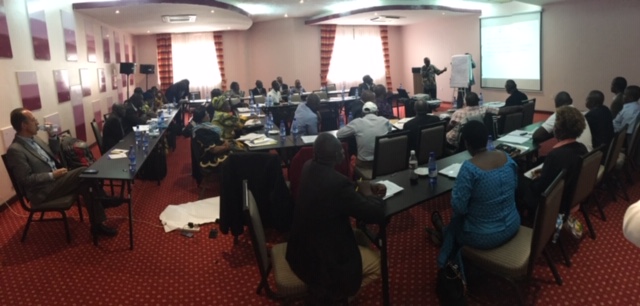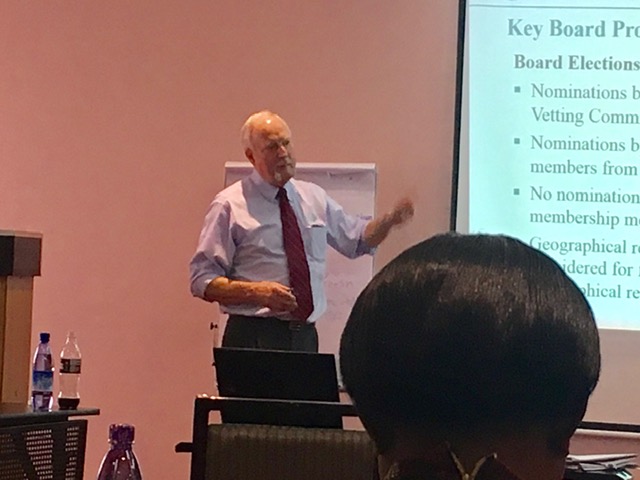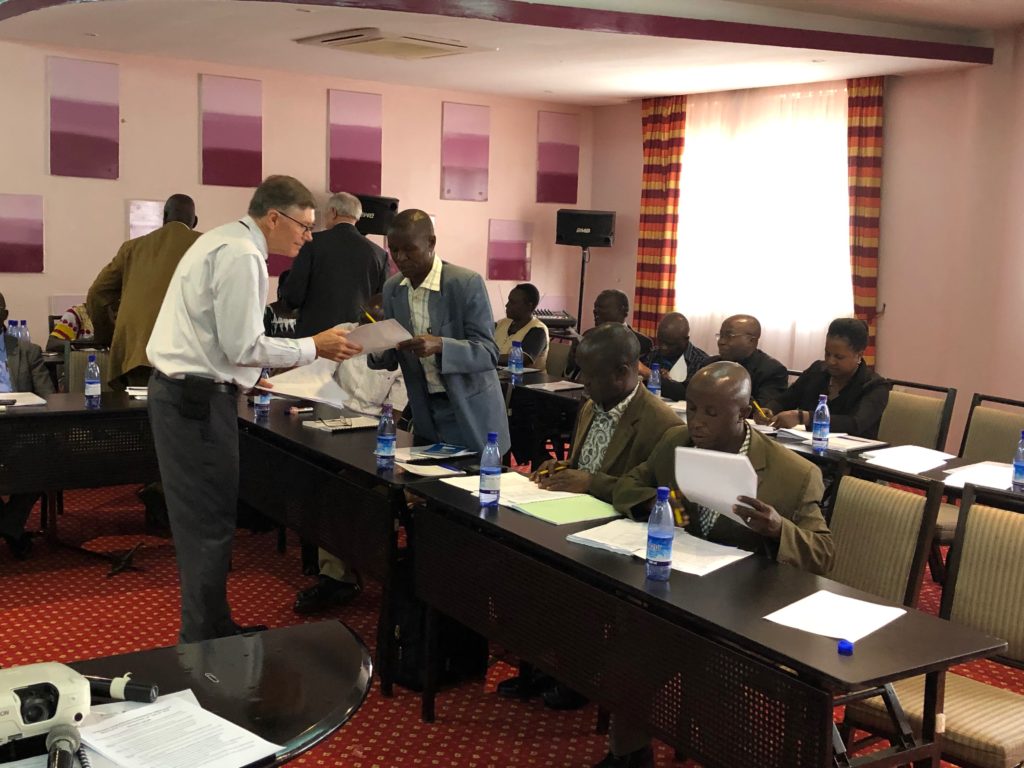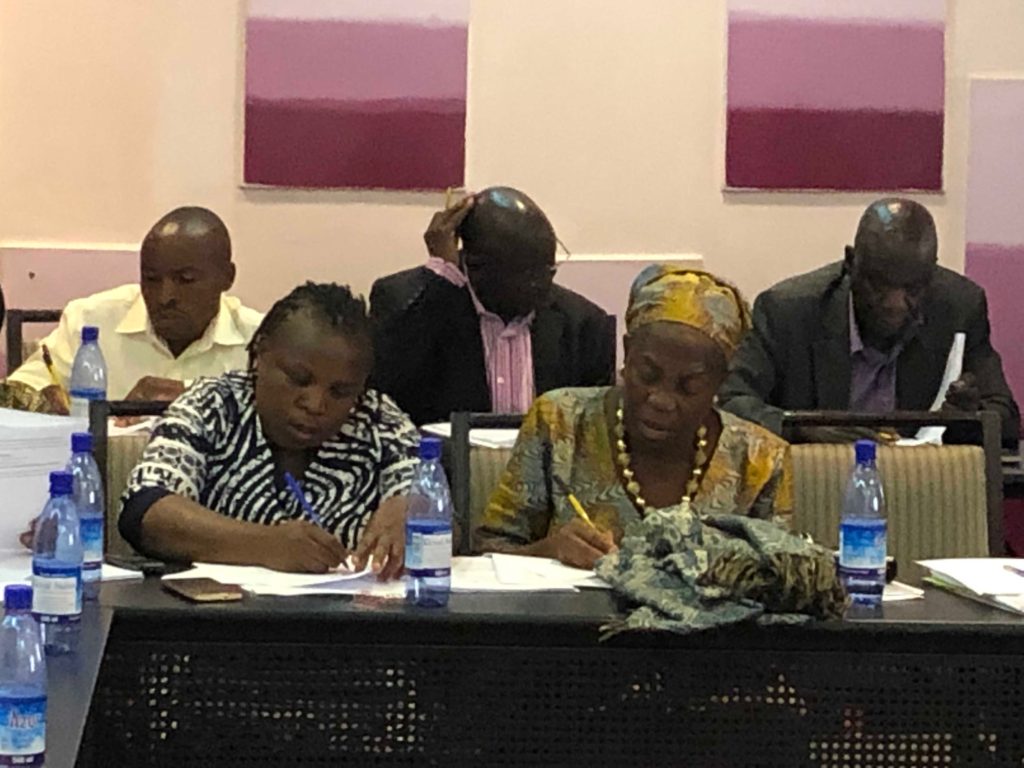
Sharing cooperative knowledge with new rural electric co-ops in developing countries strengthens the commitment to the cooperative way. Just ask Chuck Dawsey, former Benton REA CEO and general manager.
“It’s important to continue our commitment to work together cooperatively just like the early cooperative pioneers who created this amazing legacy,” said Dawsey, when he returned in December from Uganda, where he conducted a Board of Director Governance Training for the directors and general managers of the country’s four rural electric co-ops. Dawsey is also a former NRECA director from Washington.
As part of a cooperative strengthening project funded by the U.S. Agency for International Development (USAID), Dawsey and Ron Schwartau, NRECA’s director from Minnesota, provided a two day workshop that focused on co-op governance best practices with 46 Ugandan electric cooperative board members and CEOs.

The two NRECA co-op leaders were joined by Wilson Nyabutundu, the Uganda Rural Electrification Agency’s senior rural electric cooperative development officer, who provides guidance to these co-ops and frequently collaborates with NRECA International.
“There is so much our co-ops can learn from the rich history of the co-ops in America and there is a strong desire to seek information on how to be successful,” said Nyabutundu. “I am hopeful that the electric co-op model will grow to meet the needs of the rural communities in Uganda.”
One size does not fit all
“Co-op governance principles considered as best practices in the U.S. may generally apply to another culture,” said Dawsey. “However, the response we received taught us that in some instances we need to evaluate how to make sure they can be accepted and used within the cultural and social norms in Uganda.”
An example of this was the employment process, where it has become common for board members to engage in screening and recommending candidates for employment. While this practice is common across many cooperative institutions in Uganda, it can compromise the integrity and objectivity of the hiring process and is considered contrary to international best practice. During the two day workshop, Dawsey and Schwartau explained in detail the damaging impact this practice can have on the success of a co-op.

“It was interesting that a couple of co-ops understood the limited role of the board, while others were vetting potential employees and instructing the general manager on who to hire,” said Schwartau.
Schwartau serves on the NRECA Board’s international committee and, like Dawsey, is committed to sharing the cooperative way around the world.
“Although co-ops operate under different mandates for service and cooperative law in different countries, the seven cooperative principles and metrics of operations can still be applied,” Schwartau added.
Check out how you can help the NRECA International team work with co-ops around the world.
Moving the needle
Dawsey and Schwartau focused half of the training on building capacity to understand financial statements and to use key performance indicators to identify problem areas with the Ugandan cooperative trainees. The trainees were energized by this training – recognizing the power and essential importance of reviewing monthly financial statements. As a result, measuring success and improving operational efficiency is now within reach. Nyabutundu shared that while this may be a tough topic to discuss, the participants were very appreciative.
“The co-ops had not mainstreamed the idea of KPIs in many of their operational areas,” said Nyabutundu. “Once KPIs are defined, co-ops will be able to monitor and evaluate their performance during the year and ultimately improve their operational efficiency.”
Much like co-ops in America 80 years ago, these young electric co-ops face significant challenges in their communities. Since the beginning, American rural electric co-ops have consistently shared ideas and resources, creating a strong community that is always ready to help each other. This was a new concept to the attendees, but they immediately saw the value and intend to put it into practice immediately.
“Rarely do we have meetings that bring everyone together,” said Nyabutundu. “There were elaborate discussions on sharing experiences with each other, and we are beginning to witness more cooperation among co-ops.”

For Dawsey and Schwartau, it’s part of their DNA to practice the 6th cooperative principle: Cooperatives helping Cooperatives. And they hope it will catch on in Uganda.
“Sharing experiences, ideas, concepts and practices in our areas of expertise helps others and at the same time we gain insight from them which helps us,” said Dawsey. “These unique experiences help us understand our similarities and differences which enable us to see beyond ourselves.”
It is, after all, the cooperative way.
Learn more about the work we’re doing in Uganda.